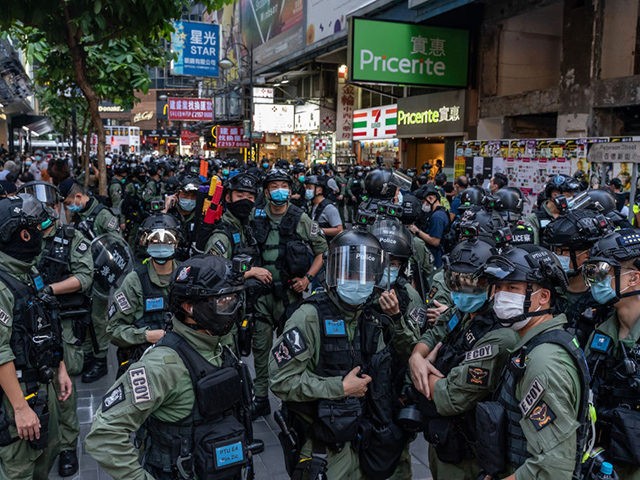Oliver Ma, a 22-year-old street musician in Hong Kong, was arrested Friday for causing “public disorder” by singing Glory to Hong Kong, the unofficial anthem of the 2019 protest movement.
Ma said he was not trying to send a political message and was not troubled by police during the first three songs he sang outside a mask shop on Queen’s Road Central. The cops moved in quickly when he started singing Glory to Hong Kong in English, shutting off his equipment and packing up his possessions after he ignored their commands to stop singing.
“I was minding my own business busking to my first crowd in seven to nine months. My first, second, and third songs had nothing to do with politics whatsoever when the cops decided to target, harass & arbitrarily arrest me again,” Ma wrote on Instagram, where he posted a video of his encounter with the police.
Ma noted the coronavirus pandemic made it hard for him to survive as a busker, and now the police have confiscated his guitar and microphone right after he got back to work. “I cannot wait another few months and not busk to make my living,” he said.
The Hong Kong Free Press (HKFP) followed up with the police Monday and was told Ma was arrested because he was “uncooperative” when officers acted on a noise complaint. The police said Ma was charged with creating “disorder in a public place” and released on bail.
“The pro-democracy busker was arrested twice last year on noise grounds and for alleged criminal intimidation following an argument with a woman over noise. He was eventually charged with violating the Covid-19 [Chinese coronavirus] mask-wearing rule and noise nuisance but was acquitted of the latter in February,” HKFP noted.
Glory to Hong Kong is a short piece, originally written in Cantonese by an unidentified young Hong Kong musician like Ma and posted on the Internet, that the protest movement embraced in September 2019.
The author of the song was pleased with its spontaneous popularity, saying it brought “new energy” to the movement. He hoped it would “unite Hong Kongers and boost public morale.”
“I wanted to write a song showing Hong Kong’s fight for democracy and freedom,” he said.
The closing lyric of the song quotes the famed protest slogan “Liberate Hong Kong, revolution of our times,” while an early verse calls on those “who would not be slaves again” to rise up and “let freedom reign.”
Hong Kong’s Beijing-controlled government warns that such phrases violate the national security law imposed by China in the summer of 2020, because they encourage “separatism.” The law mandates a minimum of ten years in prison to anyone convicted of violating it.

COMMENTS
Please let us know if you're having issues with commenting.